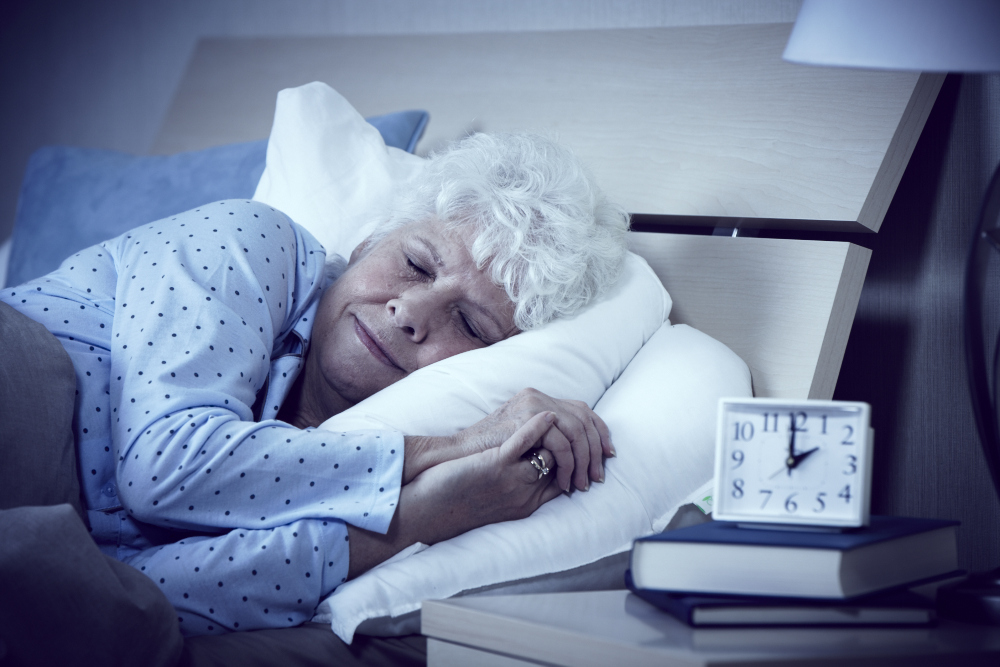Media reports of a new study are tarnishing sleep’s healthy image. The tabloid headlines scream, “Too MUCH sleep could KILL YOU.” But could sweet, gentle sleep really be a cold-blooded killer?
The British study involved nearly 10,000 adults who completed a health survey. Four years later they completed the survey again. They had an average age of 62 years, and their health outcomes were followed for an average of 9.5 years.
Sixty-nine percent were classified as “average” sleepers. They reported sleeping 6 to 8 hours on average in a 24-hour period. Twenty-one percent were “short” sleepers who reported a sleep duration of less than 6 hours. Ten percent were “long” sleepers who reported sleeping more than 8 hours.
During the study period 346 people had at least one stroke. The risk of stroke was 46 percent higher among long sleepers. The risk was even greater among those who reported a long sleep duration on both surveys. They were two times more likely to have a stroke.
The highest risk was found in people whose sleep duration increased from “short” on the first survey to “long” on the second survey. They were 3.75 times more likely to have a stroke.
So does this mean that getting too much sleep will kill you? To borrow the words of The Bard, is sleep literally, “the death of each day’s life”? Not at all.
The study was unable to examine cause and effect. So the authors concluded that long sleep may be a “marker of increased stroke risk in older people.”
They also noted that the strokes may have been caused by health or sleep problems that were not measured by the study. For example, study subjects were not screened for obstructive sleep apnea. Men with severe OSA are nearly three times more likely to have a stroke.
An editorial published with the study also noted that there is a “lack of evidence that sleeping for longer than 8 hours has adverse health effects.” The authors suggested that other underlying medical problems are more likely to deserve the blame.
So before you burn your pillow and vow to never sleep again, keep two things in mind:
- Sleep is good for you – really, really good for you. Along with a healthy diet and regular exercise, sleep is one of the three pillars of a healthy lifestyle.
- In general, more sleep is good, not bad. It’s hard to get “too much” sleep on a regular basis. Your body will let you know when it’s had enough. So if you’re tired, then sleep. Enjoy it. Love it. Wrap yourself up in it. The American Academy of Sleep Medicine recommends that you start by getting at least 7 hours of sleep each night. Instead of worrying about “too much” sleep, focus on getting healthy sleep.
Also, remember that sleep is an indicator of your health. Poor sleep may be a warning sign for an undetected health problem. Make sure that your sleep duration is a part of the conversation when you talk to your doctor:
- Let your doctor know if you get 8 to 9 hours of sleep each night and still feel unrefreshed. Non-restorative sleep can be a sign of a sleep disorder such as obstructive sleep apnea.
- Tell your doctor if you suddenly start sleeping much longer than normal. This could be a warning sign of a health problem, especially in older age.
- Contact an accredited sleep center and talk to a sleep doctor if you have an ongoing sleep problem.
Gentle sleep is no killer. You can rest assured tonight, sleep is still the “chief nourisher in life’s feast.”
Learn more about the study in the journal Neurology: Sleep duration and risk of fatal and nonfatal stroke.





